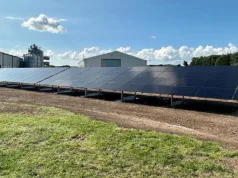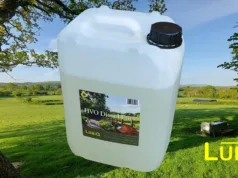
Kubota (UK) has approved use of the paraffinic fuels hydrotreated vegetable oil (HVO) and gas to liquid (GTL) in all its diesel engines, contributing to a lower carbon footprint.
The approval follows Kubota’s internal evaluation of these alternative fuels. It has confirmed that any paraffinic fuel that complies with the European standard EN15940 is suitable for use in all its diesel engines.
“This is a tremendous benefit for operators who are required to meet environmental conditions where CO2 emissions are monitored and measured,” Kubota (UK)’s agricultural and groundscare sales manager, Tim Yates, said. “For those working in urban locations, for example, or with county councils and environmental projects, achieving a lower carbon footprint is now possible with Kubota powered equipment.”
As a manufacturer of industrial engines, tractors, groundscare and construction equipment, Kubota recognises that HVO, which is synthesised from vegetable oil and fat, and GTL which is synthesised from natural gas, are becoming increasingly popular as alternative fuels due to their environmental benefits that offer reduced emissions.
“This is another example of Kubota’s engineering excellence, to enable a change in approved fuel without any modification,” Mr Yates added. “It provides owners and operators with yet another fuel choice to suit their operating environment.”
When using these fuels, operators should comply with any appropriate local regulations in the areas being used. There’s no requirement to flush fuel tanks or change filters, as HVO and GTL are safe to mix with diesel. Nor are there changes to existing maintenance intervals or warranty conditions when using these fuels. Operators may notice a slight degradation in engine performance from using the lower density paraffinic fuels compared to diesel.










